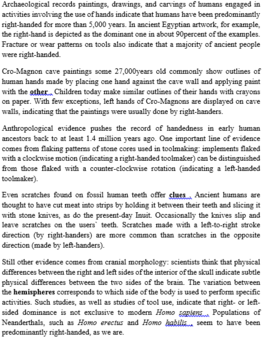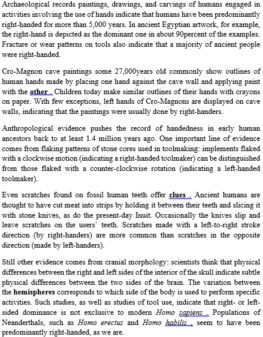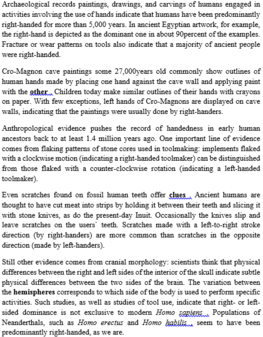Read the following passage and mark the letter A, B, C or D to indicate the correct answer to each of the questions from 36 to 42.
A rather surprising geographical feature of Antarctica is that a huge freshwater, one of the world's largest and deepest, lies hidden there under four kilometers of ice. Now known as Lake Vostok, this huge body of water is located under the ice block that comprises Antarctica. The lake is able to exist in its unfrozen state beneath this block of ice because its waters are warned by geothermal heat from the earth's core. This thick glacier above Lake Vostok actually insulates it from frigid temperatures (the lowest ever recorded on Earth) on the surface.
The lake was first discovered in the 1970s while a research team was conducting an aerial survey of the area. Radio waves from the survey equipment penetrated the ice and revealed a body of water of indeterminate size. It was not until much more recently that data collected by satellite made scientists aware of the tremendous size of the lake; satellite-borne radar detected an extremely flat region where the ice remains level because it is floating on the water of the lake.
The discovery of such a huge fresh water lake trapped under Antarctica is of interest to the scientific community because of the potential that the lake contains ancient microbes that have survived for thousands upon thousands of years, unaffected by factors such as nuclear fallout and elevated ultraviolet light that have affected organisms in more exposed areas. The downside of the discovery, however, lies in the difficulty of conducting research on the lake in such a harsh climate and in the problems associated with obtaining uncontaminated samples from the lake without actually exposing the lake to contamination. Scientists are looking for possible ways to accomplish this.
All of the following are true about the 1970 survey of Antarctica EXCEPT that it ______.
A. was conducted by air
B. made use of radio waves
C. did not measure the exact size of the lake
D. was controlled by a satellite








Đáp án D
Dịch nghĩa: Tất cả những câu sau về cuộc khảo sát Nam cực năm 1970 đều đúng, ngoại trừ nó _______.
A. được tiến hành bởi khi
B. sử dụng sóng radio
C. không đo được kích thước chính xác của hồ
D. được điều khiển bởi một vệ tinh
Giải thích: Thông tin nằm ở đoạn 2 “was conducting an aerial survey of the area. Radio waves ...penetrated the ice It was not until much more recently that data collected by satellite made scientists aware of the tremendous size of the lake” Các phương án A, B, C đều có, chỉ trừ D.